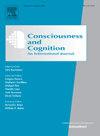Acetylcholine is a neurotransmitter and neuromodulator involved in a variety of cognitive functions. Additionally, acetylcholine is involved in the regulation of REM sleep: cholinergic neurons in the brainstem and basal forebrain project to and innervate wide areas of the cerebral cortex, and reciprocally interact with other neuromodulatory systems, to produce the sleep-wake cycle and different sleep stages. Consciousness and cognition vary considerably across and within sleep stages, with metacognitive capacity being strikingly reduced even during aesthetically and emotionally rich dream experiences. A notable exception is the phenomenon of lucid dreaming—a rare state whereby waking levels of metacognitive awareness are restored during sleep—resulting in individuals becoming aware of the fact that they are dreaming. The role of neurotransmitters in these fluctuations of consciousness and cognition during sleep is still poorly understood. While recent studies using acetylcholinesterase inhibitors suggest a potential role of acetylcholine in the occurrence of lucid dreaming, the underlying mechanisms by which this effect is produced remains un-modelled and unknown; with the causal link between cholinergic mechanisms and upstream psychological states being complex and elusive. Several theories and approaches targeting the association between acetylcholine and metacognition during wakefulness and sleep are highlighted in this review, moving through microscopic, mesoscopic and macroscopic levels of analysis to detail this phenomenon at several organisational scales. Several exploratory hypotheses will be developed to guide future research towards fully articulating how metacognition is affected by activity at the acetylcholine receptor.


